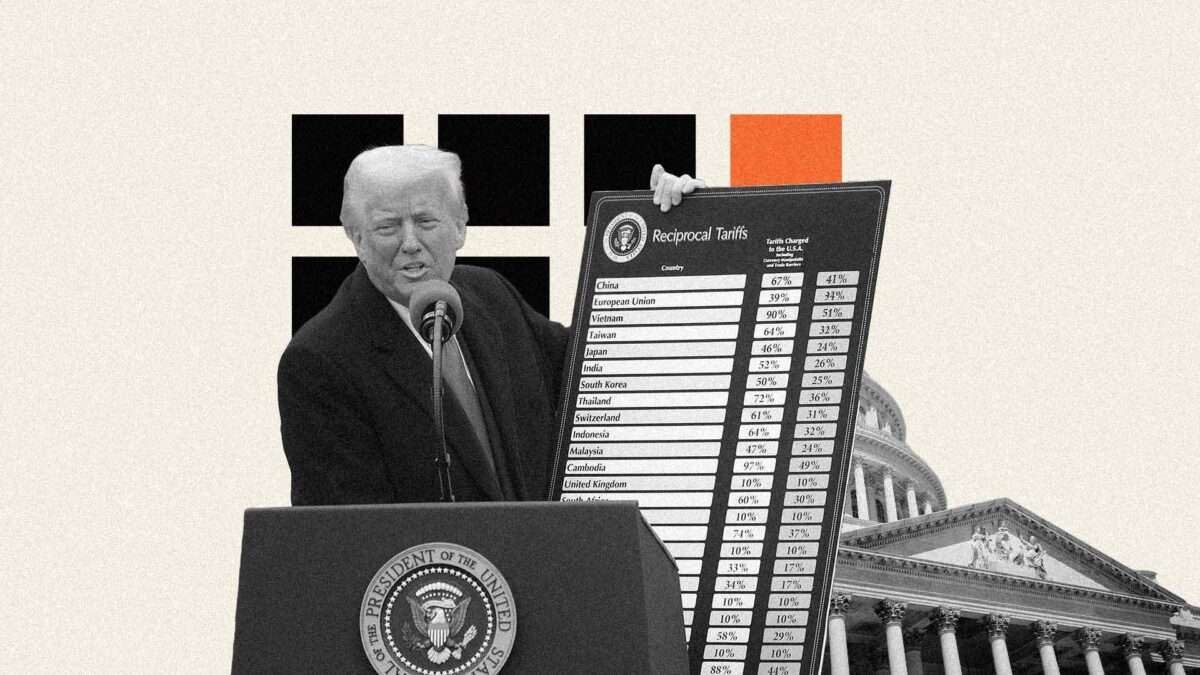A common gripe in American politics is that for too long, libertarians have been in charge, wielding too much power.
Sometimes this complaint comes from progressives in the mold of Sen. Elizabeth Warren (D–Mass.), who argue that hands-off economic policy—often derisively cast as "neoliberalism"—has fueled the growth and concentration of corporate power at the expense of small business and labor, resulting in an economy that's rigged against the little guy.
Sometimes this complaint comes from conservatives, particularly New Right voices who insist that libertarians and classical liberals have ignored the consequences of unfettered free markets for American industrial capacity and rural downscale workers while allowing the left to control major cultural institutions. In this view, libertarianism fails to prioritize the interests of America, American values, and ordinary Americans.
The charge has always carried a whiff of desperation, given how little power actual self-identified libertarians have in the corridors of government. But after four years of Joe Biden running a White House that was a hotbed of Warrenite progressivism, and the early months of Donald Trump's presidency marked by all manner of New Right paranoia and kookiness, maybe it's time to revise the complaint: Libertarians don't have enough power.
The biggest takeaway from the Trump and Biden years has been this: The libertarians were right. They were especially right about markets, international trade, and the American economy.
As a libertarian writer at a libertarian magazine, I am biased. It's my job to say that libertarians are right.
But consider recent developments on both sides of the political spectrum. On the left, the loudest and most salient self-critique of Democrats and progressive governance has come from a band of mostly younger writers and thinkers who have organized around a label they call the Abundance Agenda.
The Abundance Agenda grew out of the YIMBY ("yes in my backyard") movement, whose fundamental insight was that urban housing prices, especially in hot markets with strong economies such as San Francisco and New York, were too high, largely because building new housing was too hamstrung by bureaucracy, politics, and mandates. Projects took years to permit, if they were permitted at all, and were saddled with regulations that made them far more expensive to build. Meanwhile, Democratic governance—from President Barack Obama's stimulus to Biden's American Rescue Plan—has thrown trillions of dollars at projects with little to show for it.
The Abundance Agenda takes this insight and applies it more broadly to the economy, and to energy in particular. Some proponents argue that agenda is at heart a progressive project, about making government more efficient and capable of pulling off public infrastructure projects such as high-speed rail. But this abundance movement's core insights are libertarian—that material progress has been hampered by bureaucratic kludginess, government overreach, and activists using the courts to strangle projects with red tape.
Notably, the Warrenite left despises this Abundance Agenda, grousing that it's too unwilling to use antitrust to crack down on concentrated corporate power—essentially the same critique leveled at libertarians.
Under Trump, meanwhile, New Right champions of the president have struggled to defend the on-again, off-again, tumultuous imposition of tariffs. In the first months of Trump's second term, markets have repeatedly crashed, and sometimes rebounded, after Trump's tariff announcements. Trump's top advisers have offered wildly differing and often contradictory justifications for his trade policies, but few appear to agree with them, especially among nonaligned voters. By mid-April, two-thirds of independent voters disapproved of the tariffs, and Trump's net economic approval among unaligned voters was at negative 29, a record low.
Critics might argue that libertarians are to blame for the Department of Government Efficiency (DOGE), which has set out to reduce government spending and improve government operations. After initially touting $2 trillion in cuts, that figure was backed down to $1 trillion, and then just $150 billion by late 2026. And DOGE may not even achieve that, given its tendency to make basic, obvious errors in its savings claims.
But even beyond its math errors and mistakes, one of the most head-scratching features of DOGE has been its reluctance to coordinate or share information with experts and organizations that have spent years putting together specific, actionable plans to cut spending and reduce the size of government.
The libertarians aren't in charge. But the lesson of the last decade of politics is: They should be.
The post Put the Libertarians Back in Charge appeared first on Reason.com.













 Bengali (Bangladesh) ·
Bengali (Bangladesh) ·  English (United States) ·
English (United States) ·